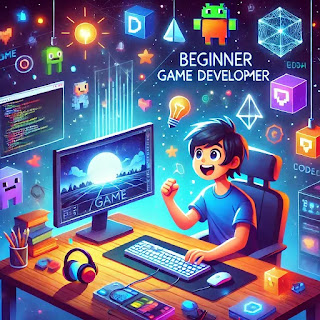How to Make a Video Game: A Step-by-Step Guide for Beginners
Game development can seem like a daunting field, but with the right guidance and tools, anyone can start building their own game. Whether you aspire to create a small indie game or dream of becoming a professional game developer, the journey begins with understanding the basics and taking that first step. This guide will walk you through the process of creating your first game, providing actionable tips and recommending beginner-friendly tools to help you get started.
Step 1: Choose Your Game Idea
Before diving into game development, you need to have a solid idea of the game you want to create. Here are some tips to help you come up with an idea:
Start Simple: Avoid overly ambitious projects. A simple platformer or puzzle game is a great starting point.
Draw Inspiration: Look at games you enjoy playing and analyze what makes them fun.
Define Your Game’s Core Mechanic: Every game has a core mechanic—whether it’s jumping, shooting, or solving puzzles. Define what will make your game engaging.
Write It Down: Draft a short game design document outlining your idea, objectives, and basic gameplay mechanics.
Step 2: Select the Right Game Engine
A game engine is a software framework that provides the necessary tools to develop and build a game. Here are some of the most beginner-friendly options:
Unity (C#) – A powerful and widely-used engine with extensive tutorials.
Unreal Engine (Blueprints or C++) – Great for high-quality graphics and has a visual scripting system.
Godot (GDScript, C#) – Open-source, lightweight, and beginner-friendly.
GameMaker Studio (GML) – Ideal for 2D game development and easy to learn.
If you’re a complete beginner, Unity and Godot are excellent choices due to their large communities and easy learning curves.
Step 3: Learn the Basics of Programming
Even if you’re not a programmer, learning basic coding will be beneficial. Here’s how you can get started:
Choose a Beginner-Friendly Language: C# (Unity), Python (Pygame), or GDScript (Godot) are good starting points.
Take Online Courses: Platforms like Udemy, Coursera, and YouTube offer free and paid courses for beginners.
Practice with Small Projects: Before jumping into a full game, try making small programs like a simple calculator or a text-based game.
Step 4: Create Your First Prototype
A prototype is a basic version of your game that allows you to test your core mechanics. Here’s how to build one:
Set Up Your Game Engine: Install the engine and go through beginner tutorials.
Create a Basic Scene: Place basic objects like a character, obstacles, and platforms.
Implement Core Mechanics: Add movement, jumping, or simple interactions.
Test and Iterate: Play your prototype and make necessary adjustments.
Step 5: Add Graphics and Sound
Your game doesn’t need to have top-tier graphics, but adding visual elements and sound enhances the experience. Consider the following:
Use Free Assets: Websites like OpenGameArt, Kenney.nl, and Unity Asset Store offer free assets.
Learn Basic Pixel Art: Tools like Aseprite and Piskel allow you to create simple game sprites.
Find Free Sound Effects: Sites like Freesound.org provide royalty-free sound effects and music.
Step 6: Polish and Playtest Your Game
Once your game is functional, it’s time to refine it:
Fix Bugs: Test your game thoroughly and fix any glitches.
Enhance Gameplay: Adjust difficulty, balance mechanics, and improve player experience.
Get Feedback: Ask friends or online communities to playtest your game and provide constructive criticism.
Step 7: Publish and Share Your Game
Now that your game is ready, share it with the world! Here’s how:
Publish on Itch.io or GameJolt: These platforms allow indie developers to showcase their games for free.
Join Game Jams: Participating in game jams like Ludum Dare can help you gain experience and exposure.
Promote Your Game: Share your development process on social media, forums, and developer communities.
Encouragement for Beginners
Starting game development can be overwhelming, but don’t let fear hold you back. Remember:
You Don’t Need to Be an Expert: Everyone starts somewhere, and mistakes are part of learning.
Consistency is Key: Work on your game a little each day to build momentum.
Join a Community: Engage with game development forums, Discord servers, and social media groups for support.
Enjoy the Process: Game development is a creative journey—have fun and celebrate your progress!
Conclusion
Building your first game is an exciting and rewarding experience. By starting small, choosing the right tools, and continuously learning, you’ll gain the skills needed to bring your ideas to life. Don’t be afraid to experiment and make mistakes—the most important thing is to start. Happy game developing!



Comments